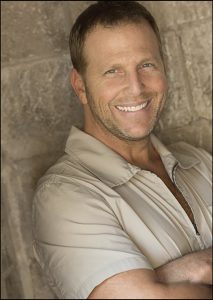
Miami record executive Joe Boogiedown Stone has worked with the likes of Kanye West, Latimore, and the Black Eyed Peas. The HSM record label that Henry Stone founded and passed the reins on down to him is featured in Hollywood films, Netflix programs, and video games such as Call of Duty.
Joe is the son of Henry Stone. He grew up surrounded by soul, funk, and disco music; and learned the business by following his father’s example. Joe became a pioneer in the influential Miami Bass genre while still in his teens. Rolling Stone magazine even recognized his “Cars with the Boom”, co-written with and performed by L’Trimm, as one of the Top 100 Hip Hop Songs of All Time.
Joe was taught how to produce and engineer by greats like Atlantic Records legend Tom Dowd, and pop music record breaker Harry Wayne Casey (K.C. and the Sunshine Band). He also has his own hit records as an artist in the parody duo The 2 Live Jews.
These days, the busy record man keeps the HSM studio updated with the latest versions of iZotope software. Here’s what Joe had to say about Ozone 9, studio magic, and high technology.

Congrats on the great sounds!
Thank you it’s a lot of hard work. I appreciate it.
How did you first find Ozone?
I was researching ways to clean up some old masters to get them sounding right without affecting the original sound too much, and in my research I found iZotope and I started using their products.
What do you use iZotope Ozone for?
We use it for cleaning up old recordings and preparing them for reissue. We also use their plugin module for mastering to put a nice finishing touch on things going out for streaming so we can add back that nice analog richness. Their software is spectacular. It doesn’t impede the original sounds, it just helps to accentuate and bring them forward without altering the original.
What are your favorite effects?
Spectral repair. I love the new Master Assistant in Ozone. The low end control is fantastic and I love, love, love the vintage tube, vintage tape, and vintage compressor plugins.
How does it improve the mastering process?
Well with the new Master Assistant, it can give me a nice base line automatically and then I can go in and either adjust those suggested plugins that have been applied, I can remove them, or I can add additional ones, so it has streamlined and sped up the entire process with excellent sound quality.
Have any Ozoned tracks been synch licensed?
Oh yeah, I’m sure almost all of the tracks that we place in tv and advertisements have a little touch of iZotope on them somewhere.
How did you achieve these effects originally in the studio?
Back in the day it was a painstaking process of patching in the right processing equipment, trying different settings, listening, going back, taking another print, listening to that print to see if it sounds good .. what used to take hours or days could now be done in minutes or hours.
What are the most common problems in digitizing classic recordings?
The biggest problems I run into can be distortion, hum, low end hum, sometimes tape noise,,,these things can be problematic and very difficult to get into and clean up without having this what must be alien technology that iZotope has gotten and been able to disseminate to us earthlings working on music. I use Ozone for a lot of old studio tapes, and sometimes vinyl. I also use it on new projects and we use it on voice over as well.
What’s the most recent project you have used it on?
We used Ozone on the last Rickey Calloway, and the next one coming up. We used a bunch of the iZotope software on Hip Hop Lullabies by The Joe Show.
What is the best restoration you have used Ozone on?
Well, Ozone is for Mastering, but RX7 does the restoration. Spectral repair is pretty magical. Once we have it all cleaned up and restored we run it through Ozone to give it the nice tasty finish and polish that brings out the lows and highs without changing the original sounds.
You have been using the iZotope for a while. What do you think of Ozone 9 so far?
So far it’s looks pretty awesome. Looking forward to exploring some of the new features and using it on all of our releases.
What you got coming up?
Next up we got Hip Hop Gospel, we got some more Rickey Calloway from the archives, and we got Amos Larkins and Henry Stone Presents The Real History of Miami Bass; a compilation of the original bass records that Amos wrote for Henry Stone back in the 1980s – during the FHL records era- right before Sunnyview Records.
